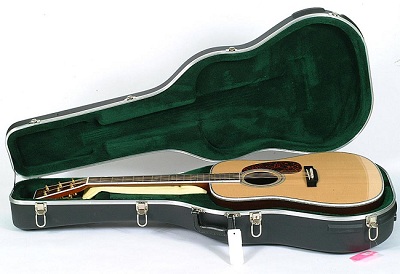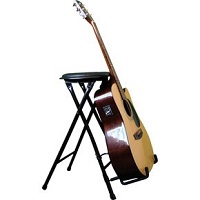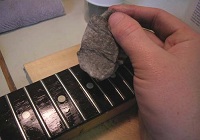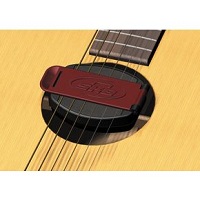Maintaining your Acoustic Guitar
Understanding the basics of acoustic guitar maintenance is as important as knowing which guitar to buy. Even the most beautiful acoustic guitar will end up becoming a lump of twisted wood if not properly cared for. Here are some tips to keep your guitar safe and functioning properly.
There’s no place like home

When buying an acoustic guitar, you should automatically be thinking of its proper guitar case. Getting the right guitar case for your guitar is the most important maintenance investment that you will ever make. It will serve as your guitar’s home, keeping it safe from impact, stress, heat and humidity. A great case will save you from a lot of unnecessary future repair expenses. Many quality acoustic guitars come with a guitar case, if it doesn’t, then it is imperative that you talk to the dealer to find a suitable case. Your guitar has to fit perfectly into the case and its neck should have good support.
Handle with care

Since acoustic guitars are made of fragile wood, you have to handle them with utmost care. You have to avoid impacts that could scratch, dent, or worse – break the wood of your guitar. The best way to avoid accidents is to keep your guitar space free of clutter. Be it on stage or at home practicing, it will be wise to have a place where you can play your instrument and freely move, devoid of things that can hit your guitar, and free from things that you can accidentally trip on. Setting up your playing space goes a long way in protecting your guitar. You should also take extra care when changing your strings; you don’t want to end up damaging your guitar with your strings, or your tools. Finally, get yourself a reliable strap to ensure the safety of both you and your acoustic guitar.
Keep it clean

Despite the hype, cleaning your guitar does not require magical potions. Just get a clean cloth and wipe it on the strings and on the body to remove the dust and grime. For best results, you should clean your guitar after every use. Cleaning the strings will remove the grime build up allowing it to vibrate better and extending its life. The wood and the hardware will also benefit from being dust and dirt free. Put extra effort in cleaning the fretboard as well as the hard to reach crevices around the bridge, as well as the between tuners.
Avoid stress
Stress is the worse type of problem because it is unnoticeable and damages your guitar gradually. You will suddenly wake one day to find that the intonation is off and all the other problems that come with warped and bent wood. Acoustic guitars can only handle a specific range of tension in the strings. You have to ensure that your tuning and string gauge does not exceed the manufacturer’s specifications. It’s best to stick with the same gauge strings that were originally put on by the manufacturer. Improper storage and leaning your guitar without neck support will also increase stress which might cause the neck to bend, warp, or even break. When you have to temporarily put it down, place it on a guitar stand. If it won’t be used for longer periods, it is best to place it back on its case.
Watch the weather

Sudden changes in humidity, and its extremes, are bad for acoustic guitars. High humidity makes the wood expand as it absorbs some of the moisture in the air, making your guitar prone to cracks and dents. Low humidity is a major no-no because it shrinks the wood, sometimes removing parts from their glued position and in worst cases, can easily warp guitars enough to scare the best luthiers. Since luthiers use heat to loosen glue joints, it will be wise to steer clear from any extreme sources of heat. Also note that sudden temperature changes can damage the finish of many acoustic guitars, when moving into places with big temperature differences, it is best to keep your guitar in its case for a while to let it gradually adapt to the current weather. There are a number of guitar humidifiers available on the market which will help maintain proper humidity levels – especially if you play your guitar in places with extreme weather changes.
Visit the Doctor
From time to time, it is best to take your acoustic guitar to a guitar doctor. Especially when you notice changes in action, string height, wood warping, bending and cracks. There are a few things that you can do like adjusting the truss rod, and checking the nut, bridge, and tuners. But it will always be best to have a professionals check your guitar. They can replace worn out frets, adjust alignment, action and intonation, and help with a number of wood related problems. Just like with cars, it is best to have professionals fix or set up your guitar before a problem gets too big and expensive.
By following these tips you can enjoy you’re your much loved instrument longer while keeping your sanity and wallet intact.
